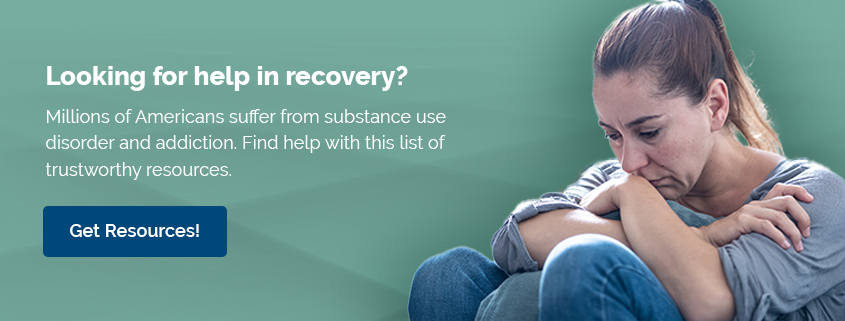Can You Prevent Your Children From Inheriting Addiction Problems?
Addiction is a complex disease that can be difficult to overcome, and unfortunately prevention is never guaranteed. It often runs in families, and unfortunately, children of addicts are at a higher risk of developing addiction problems themselves. But does this mean that addiction is hereditary? And are there steps you can take to TRY to prevent your child from inheriting your addiction?
Disclaimer: Addiction looks different for everyone. This article will make general statements about addiction and is not meant to diagnose or suggest treatment. If you or a loved one is struggling with addiction, contact a treatment center.
*If this is an emergency, please call 9-1-1.
What Is an Addiction Problem?
It’s not just a craving. Addiction is a chronic mental health disorder that causes a person to compulsively seek out addictive behaviors, despite harmful consequences. People with an addiction may not be able to stop using the substance on their own; treatment programs help them develop strategies for managing their condition.
While drug addiction and alcohol addiction are the most common, people can develop an addiction to many other substances and activities, including gambling.
Treatment Options for Substance Abuse and Addictive Behaviors
Since addictions vary, there are many different types of addiction treatments. Treatment centers typically offer various plans to fit the individual, which can include combining multiple types of treatment.
Detox & MAT Programs
Treatment programs for drug use and alcohol abuse problems often include a way for individuals to overcome withdrawal symptoms. (This ranges from inpatient detox treatment centers to outpatient medication-assisted treatment programs (MAT).)
People struggling with alcohol use or substance use disorders can experience intense withdrawal symptoms when they suddenly stop using: nausea, vomiting, muscle pain, chills, fatigue, flu-like symptoms, and more. Detox programs allow the patient to go through these symptoms with healthcare professionals by their side – around the clock.
Support Groups
Support groups are extremely helpful for those in recovery. This type of treatment shows patients that they are not alone – during meetings, they are able to talk with others who are going through similar situations. While supportive family members and loved ones are crucial to successful treatment, it helps to have people to lean on that have a personal understanding of what the recovery process is like.
Therapy
Most patients in recovery also have therapy included as part of their addiction treatment program. Since there are many types of therapies, the person’s specific needs are reviewed in order to include the most beneficial treatment option for therapy. Addiction recovery is hard, but therapy helps the patient get through it more easily.
Genetics Role in Addiction
Addiction is a chronic disease that affects multiple generations of families. Studies by the National Institute on Drug Abuse have shown that children of addicts have a genetic predisposition to develop an addiction themselves. Addiction is a disease, so a person’s susceptibility to addiction can be found in their genetic makeup.
While family history is taken into consideration, other risk factors impact a person’s likelihood of developing an addiction. For example, if a child is exposed to drugs or alcohol in the womb, they will be born with those substances in their system. In these cases, the baby is born already addicted to the substance and will experience withdrawal symptoms.
Treatment & Prevention for Children of Addicts
Children of addicts are also more likely to have behavioral problems, including aggression and delinquency. In addition, children of alcoholics or addicts are more likely than their peers to have learning problems and mental health, as well as a propensity for substance abuse.
The good news is that the research shows that these risks are not inevitable. Environmental factors play a significant role in prevention, and If you can provide your children with a safe home where childhood needs are met without stress or trauma, you may be able to prevent your child from developing an addiction later on in life.
Be a Positive Role Model
One of the best ways to prevent your child from inheriting addiction is to be a role model for positive and healthy behaviors. Show your child that recovery is possible. Your actions can inspire them to make choices that will ultimately improve their overall well-being.
Routines are extremely helpful in recovery, especially if they support getting enough sleep, eating healthy, exercising, attending meetings, and other beneficial habits. Demonstrating these healthy routines helps your child adapt in their own life, aiding them in either recovery or prevention.
Low-Intensity Educational Group Therapy
Some organizations, like Meridian HealthCare, offer educational series for adolescents at risk for substance abuse. At Meridian in particular, the eight-week session addresses behavior issues and emotional problems, providing group therapy that covers anger management, building self-esteem, coping skills, healthy relationships, relapse prevention, and more.
Outpatient Treatment
Outpatient treatment helps adolescents recover from addiction. There are 24-day treatment sessions that are flexible to meet the needs of youth, caregivers, and families. This treatment includes both individual and group therapy, education, and drug testing. Education programs cover relapse prevention, recovery plan development, improving coping skills, and more.
Relapse Prevention and Aftercare
After initial treatment is complete, aftercare and relapse prevention provide the support needed for a successful recovery. Aftercare follows an adolescent through their recovery process and provides individual, group, and family counseling. By participating in aftercare, health care providers can support recovery and refer the patient back to a higher level of care when necessary.
Risk of Addiction
There are a variety of factors that can contribute to substance abuse disorder. While family history plays a role, environmental factors (such as exposure to trauma or stress) can also increase the risk of developing substance abuse problems.
Additionally, it’s important to keep in mind that mental health problems often coexist with substance abuse disorders, making it difficult to overcome addiction. Common co-occuring mental illnesses include depression, anxiety, and bipolar disorder.
There Is Hope for Recovery from Addictive Behavior
Addiction is a chronic mental health disorder that can cause a person to compulsively seek and use drugs or alcohol, despite harmful consequences. With treatment and support at Meridian HealthCare, it is possible to overcome addiction issues and prevent your child from inheriting your addiction. Reach out to Meridian today to learn more about setting your family members, including youth and adult children, up for a successful addiction-free life!
*If this is an emergency, please call 9-1-1.






